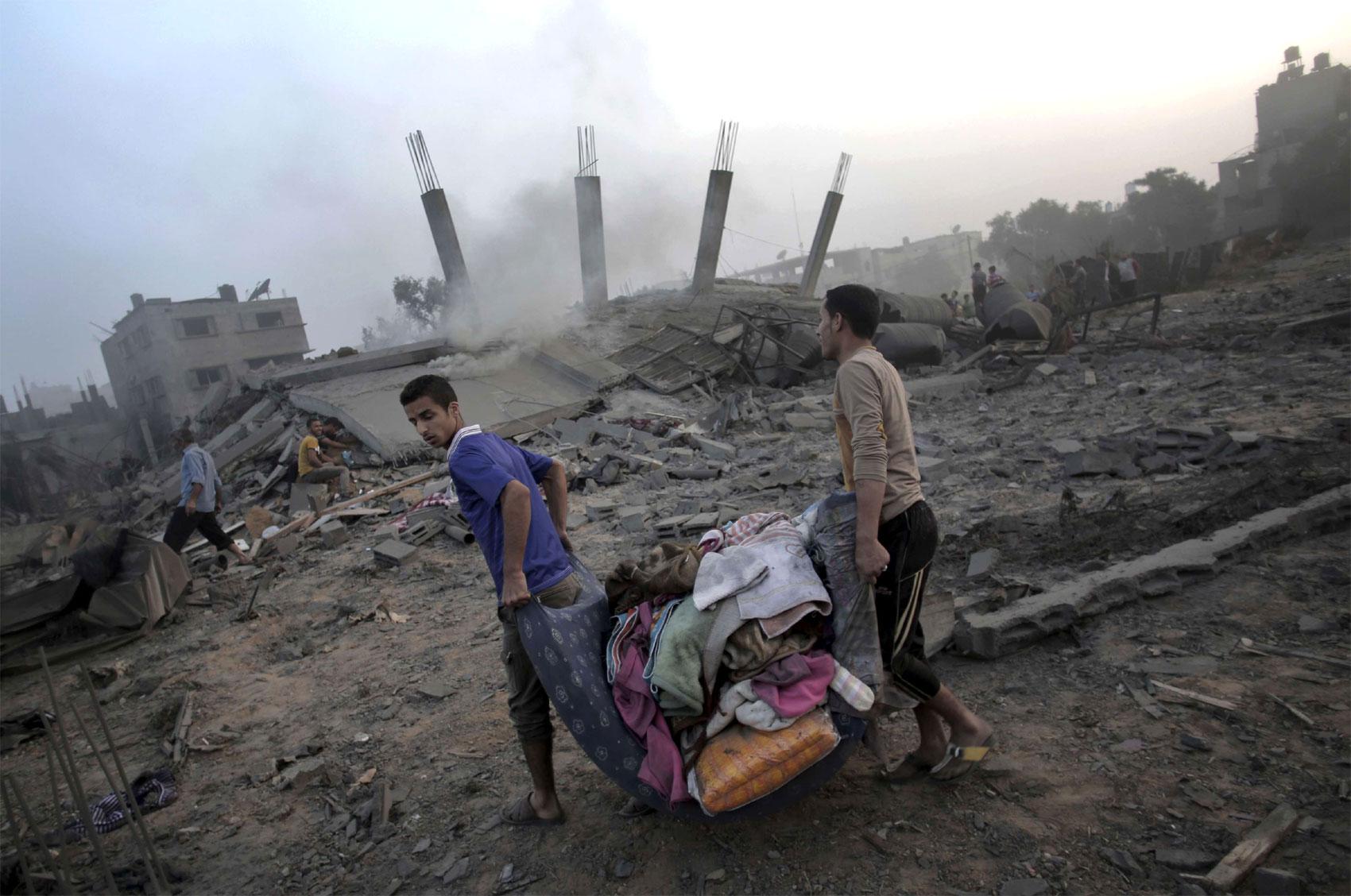Palestinians face worsening crises with little hope of redress
Palestinians are facing a number of crises that appear to be worsening fast as the international community fails to put forward a plan to halt dangerous escalations vis-a-vis Israel and sharp divisions between Fatah and Hamas.
Israeli forces killed more than 60 Palestinian protesters in the Gaza Strip on May 14, drawing renewed international condemnations. That came after human rights groups decried Israel’s “unlawful” killing of 17 unarmed Palestinian protesters who approached the border fence between Gaza and Israel on March 30, when demonstrations began. Such calls for Israeli restraint have gone unheeded and the Palestinian death toll has since climbed to 115.
Palestinians said they would continue their mass protests, dubbed the Great March of Return, to highlight the humanitarian crisis of the besieged Gaza Strip and the wider plight of Palestinian refugees and their descendants, who make up the majority of Gaza’s population.
Israeli officials and analysts said Israel was acting in self-defence in the face of attempts by Hamas to infiltrate its border and stage attacks against its citizens.
“Behind (the civilians) are well-armed squads with the clear intention of exploiting the chaos to snipe, plant bombs, shoot or kidnap Israeli soldiers and civilians,” wrote Yoram Schweitzer, an expert on international terrorism, in the Jerusalem Post.
Israeli commentators cited a remark by a senior Hamas official confirming that the majority of Palestinians killed on May 14 were Hamas members as proof that Israel was only targeting terrorists.
“In the last round [of protests] 62 people were martyred; 50 of them are from Hamas. How can Hamas reap the fruits if it pays such an expensive price?” Salah Bardawil, a member of Hamas’ political bureau, told Gaza-based Baladna TV, in response to accusations that his group was using the deaths of ordinary Gazans for its own political gains.
Rights groups have maintained that it is unlawful to kill Palestinians just for being members of Hamas, and UN rights officials stressed that even attempts by protesters to breach the Gaza fence do not constitute legal ground to shoot them unless they pose an immediate danger to Israeli soldiers.
“An attempt to approach or crossing or damaging the fence do not amount to a threat to life or serious injury and are not sufficient grounds for the use of live ammunition,” Rupert Colville, a spokesman for the United Nations High Commissioner for Human Rights, told reporters.
“This is also the case with regards to stones and Molotov cocktails being thrown from a distance at well-protected security forces located behind defensive positions,” he added.
Michael Lynk, the UN special rapporteur on human rights in the occupied Palestinian territory, told the New York Times the May 14 killings reflected a “blatant excessive use of force by Israel,” which under humanitarian law could amount to a war crime.
Hamas insisted that the mass protests were collectively organised by all political factions in Gaza, including its rival Fatah.
“Hamas does not lead the (organising) body, does not lead any committee… but if [Hamas] youth take the initiative and implement the directions of the committees with more sincerity, then that is something that’s praiseworthy,” said Bardawil.
He denied Israel’s claims that protesters were seeking to cross the border in order to attack Israeli citizens.
“The aim was to put the Palestinian flag on the Gaza fence or inside (the Israeli side)… It was just a symbolic move to say Palestinians have put one foot on their land, which was occupied in 1948, that was the peak of our ambition,” he said.
The Arab League and the Organisation of Islamic Cooperation condemned Israel’s killing of Palestinians and called for an independent investigation along with some European states, but no tangible outcome is expected on that front while the United States is siding firmly with Israel.
The deadliest day for Palestinian protesters in Gaza coincided with the inauguration of the US embassy in Jerusalem. Celebratory images in Israel of officials welcoming the new embassy contrasted with images of dead and wounded Palestinians, further accentuating the day’s violence and heightened tensions.
Two days after the US ceremony, Guatemala opened its embassy in Jerusalem and Paraguay announced it would do the same by the end of the month, though those moves drew less Palestinian attention.
US President Donald Trump’s decision to recognise Jerusalem as Israel’s’ capital last December soured ties with Palestinian President Mahmoud Abbas, who had hoped Washington’s mediation would restart peace talks with Israel. Abbas responded by accusing the United States of siding squarely with Israel and said the country was no longer fit to be the main mediator in the Middle East talks.
Tensions continued to escalate when the US announced it would relocate its embassy in Israel from Tel Aviv to Jerusalem in May, much sooner than originally planned. The US withdrawal of aid money destined to the Palestinian territories via the United Nations resulted in Abbas hurling insults at the Trump administration but it left him with little room to manoeuvre diplomatically.
Abbas’ reconciliation talks with Hamas, mediated by Egypt, have also hit a dead end and tensions between the two sides peaked on March 13 following a failed assassination attempt targeting Palestinian Prime Minister Rami Hamdallah during a visit to Gaza. Hamas, which controls security in Gaza, denied responsibility after Abbas implicated the group.
Abbas said he would no longer accept anything less than a total disarmament of Hamas; otherwise, he would continue with his punitive economic measures against Gaza. The Hamas-Fatah reconciliation bid appears less feasible than ever despite the challenges they both face from Israel and the United States.
This article was originally published in The Arab Weekly.
Copyright ©2018 The Arab Weekly







